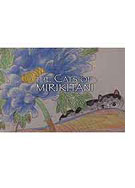

Opening 28 Feb 2008
Directed by:
Linda Hattendorf
Writing credits:
The most appreciable aspect of this documentary is how everything that was filmed in a period of over six months seemed to gel so well into a cohesive, poignant, warming story with a happy ending. And you slightly fall in love with the subject of the story, a little homeless man named Jimmy Mirikitani, as he awakens compassion and consideration for such members of society with whom we have very little to do and to whom we give very little regard. The story starts as the director, Linda Hattendorf, meets Jimmy for the first time where he lives on a street corner not far from her apartment in Soho in New York City. Hunched over, he paints intense pictures of cats and memories of life in a war camp. Jimmy, being Japanese-American, was held in an enemy war camp in Tule Lake, California, after Japan bombed Pearl Harbor, and all U.S. citizens of Japanese decent were rounded up and held against their will under bad conditions, leading to sickness and death. Jimmy, who calls himself “grand master artist,” slowly reveals to Linda the devastating experiences he suffered, including the destruction of his family due to the bombing of Hiroshima, and it is clear that he, through all these years, has never come to terms with his experiences and attempts to work them out, again and again, in his mind through his paintings. Jimmy's corner was but a stone’s throw away from the World Trade Center, which often loomed in the background during the very first part of the film. But on the day of the terrorist attacks, 9/11, the twin towers looked like giant incense sticks spitting black smoke out into space, while little Jimmy, still standing there, shaking his head and painting, loses, yet again, another place called home.
At this point, a compassionate Linda asks Jimmy to come and live in her apartment to save him from the choking ashes and soot, and over the next few months Linda learns how a man and artist, full of life and hope, gets turned into a hunched-over, humiliated, broken old man by the devastation of war. And yet, through it all, Jimmy seems to have kept his sense of decency, respect and humor. His message is clear: “Make art, not war.” And that reminds us that we have the choice of peace, Again. The happy ending is wonderful, as Linda helps Jimmy rebuild his life, and it evoked in me a few tears and the satisfaction of knowing that life is sometimes very fair. (the KinoCritics)